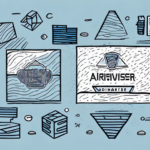The Growing Landscape of Long-Distance Independent Courier Jobs
Courier jobs have been integral to the transportation of goods and parcels for centuries. With the advent of technology and the expansion of global commerce, the long-distance independent courier industry has seen significant growth. According to a report by Statista, the global courier industry is expected to reach a market size of $600 billion by 2025. This surge is fueled by the rise in e-commerce and the increasing demand for fast, reliable delivery services.
The Benefits of Working as a Long-Distance Independent Courier
Flexibility and Independence
One of the primary advantages of being an independent courier is the ability to set your own schedule. This flexibility allows couriers to balance work with personal commitments, making it an attractive option for many.
Earning Potential
Independent couriers often have the opportunity to earn more than their salaried counterparts. By setting competitive rates and securing multiple contracts, couriers can significantly increase their income. According to the Payscale, the average hourly rate for couriers varies widely, providing room for increased earnings based on performance and client relationships.
Personal Growth and Skill Development
Managing your own courier business fosters valuable skills such as time management, customer service, and logistical planning. These skills are transferable to various other industries, enhancing long-term career prospects.
Challenges Faced by Long-Distance Independent Couriers
Logistical Complexities
Handling long-distance deliveries involves navigating complex logistics, including route planning, adhering to delivery deadlines, and managing transportation costs. Efficiently managing these factors is crucial for maintaining profitability.
Regulatory Compliance
Independent couriers must stay informed about varying regulations across different states and countries. This includes understanding customs procedures, transportation laws, and safety regulations to ensure compliance and avoid legal issues.
Risk Management
The risk of accidents, theft, and delays is inherent in long-distance delivery jobs. Investing in quality safety equipment, reliable vehicles, and securing appropriate insurance are essential steps in mitigating these risks.
How to Start a Career as a Long-Distance Independent Courier
Obtaining Necessary Licenses and Certifications
Before embarking on a courier career, it's essential to acquire the required licenses and certifications for transporting goods across state or international borders. Resources such as the Federal Highway Administration provide detailed guidelines.
Investing in Reliable Equipment
A dependable vehicle is a cornerstone of a successful courier business. Additionally, investing in safety gear and technology, such as GPS tracking systems, can enhance service reliability and efficiency.
Building a Client Network
Establishing a solid client base is critical. Networking, online advertising, and partnerships with local businesses can help in attracting clients. Platforms like Upparoo offer opportunities to connect with potential clients.
Leveraging Technology for Enhanced Courier Services
GPS Tracking and Real-Time Updates
Implementing GPS tracking allows couriers to provide real-time updates to clients, improving transparency and reliability. This technology also aids in route optimization, reducing delivery times and fuel costs.
Automated Scheduling and Management Tools
Utilizing software for scheduling and order management can streamline operations, allowing couriers to handle more deliveries efficiently. Tools like DispatchUp offer comprehensive solutions for courier management.
Mobile Applications for Communication
Mobile apps facilitate seamless communication between couriers and clients, enabling quick resolution of issues and providing a platform for feedback. This enhances customer satisfaction and fosters long-term relationships.
Strategies to Increase Earnings as an Independent Courier
Securing Long-Term Contracts
Establishing long-term contracts with businesses ensures a steady stream of income. Focus on building relationships with local retailers, manufacturers, and service providers who require regular courier services.
Expanding Service Offerings
Diversifying the types of deliveries you handle can open up new revenue streams. Consider offering specialized services such as same-day delivery, oversized item transport, or temperature-controlled deliveries.
Optimizing Routes and Reducing Costs
Efficient route planning minimizes fuel consumption and reduces delivery times. Software solutions like Route4Me can assist in optimizing delivery routes.
Future Trends in Long-Distance Delivery and Their Impact on Independent Couriers
Growth of E-Commerce
The continued expansion of e-commerce is expected to drive demand for courier services. As online shopping becomes increasingly prevalent, independent couriers will find ample opportunities for growth.
Adoption of Green Logistics
Sustainability is becoming a priority in logistics. Couriers adopting eco-friendly practices, such as using electric vehicles or optimizing delivery routes for fuel efficiency, will gain a competitive edge.
Integration of Artificial Intelligence
AI is set to revolutionize the courier industry by enhancing route optimization, predictive maintenance, and customer service automation. Staying abreast of these technological advancements is crucial for maintaining competitiveness.
Conclusion
The long-distance independent courier industry offers a dynamic and potentially lucrative career path. By understanding the benefits and challenges, leveraging technology, and implementing effective strategies, couriers can build successful and sustainable businesses. As the delivery landscape continues to evolve, staying adaptable and forward-thinking will be key to thriving in this competitive market.








